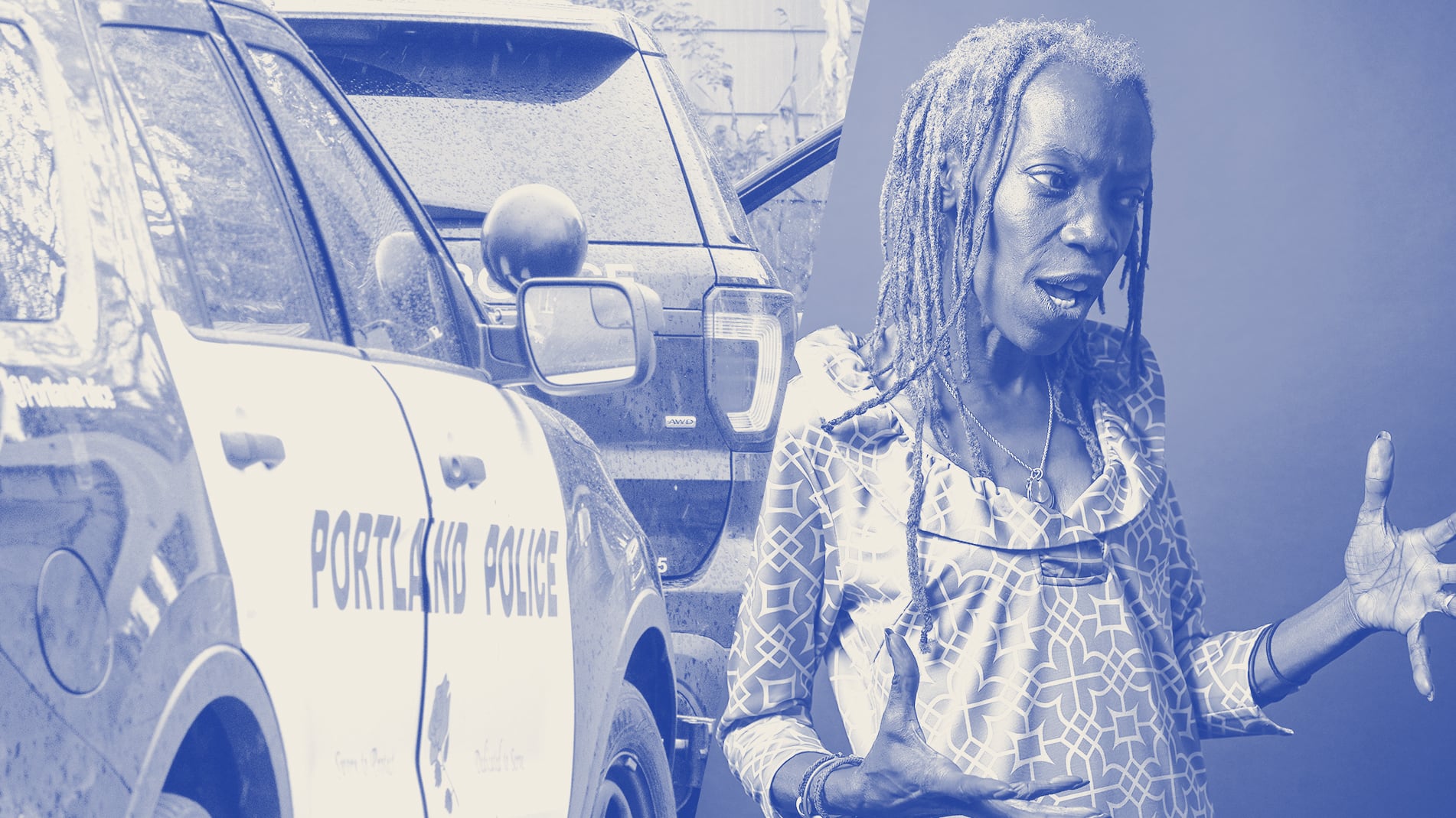City Commissioner Jo Ann Hardesty lost her reelection bid this month. But on another front, her battle continues: Her lawsuit against the Portland police union has reached the discovery phase, and both sides are demanding records that could prove explosive.
The case: On Dec. 13, 2021, Hardesty sued the city of Portland, the Portland Police Association, its former president Brian Hunzeker, and Officer Kerri Ottoman, alleging they leaked information to The Oregonian in the spring of 2020 that falsely implicated Hardesty in a hit-and-run.
She sued them in Multnomah County Circuit Court for discrimination and retaliation, intentional interference with economic relations, false light, and public disclosure of private facts. She seeks $5 million in damages.
The latest filings: Both sides demand that records be produced by the other as part of discovery. And they’re both going for the jugular.
Hardesty’s attorneys asked June 8 that Judge Benjamin Souede compel the defendants to produce over three years of communications relating to Hardesty to and from Hunzeker and Ottoman and a third officer, Ken Le. They also sought “text messages, email or social media activity regarding Black Lives Matter, George Floyd, defunding the police and the [Portland Police Bureau] budget.”
Ottoman and the PPA argued through their attorneys it was unduly burdensome to require them to disclose communications received from others over a three-year period, and also claimed such communications would be exempt from disclosure because of union privilege.
“Defendants argue that discovery seeks their private communications never meant to be disclosed in public,” PPA attorney Andrew Campbell wrote in a reply. “Defendants argue that they would be embarrassed if Plaintiff used their communications in her reelection campaign.”
Hardesty’s attorneys argued there was no such privilege for the documents they requested. Matthew Ellis wrote: “Because the individual Defendant’s motives with respect to the Plaintiff are squarely at issue, communications sent, or received, by Hunzeker or Ottoman regarding the Plaintiff are a prime source of evidence regarding Defendants’ motives.”
Meanwhile, attorneys for the PPA asked Judge Souede on June 7 to compel Hardesty to produce and all documents related to gambling activity in order to gain “a picture of Plaintiff’s gambling activity since 2016 and her current financial status.” It is unclear any such records exist and what they would contain. Hardesty has been known to visit casinos in her spare time, and in 2020 was in a dispute with a Lyft driver giving her a ride home from Ilani Casino Resort in Ridgefield, Wash.
Hardesty’s attorneys argued that such records had nothing to do with her claims of racial discrimination. The PPA’s attorneys argued that because Hardesty is also suing for reputational damages, “defendants are entitled to explore the possibility that Plaintiff’s real motive is not the vindication of any sort of legally cognizable injury, but instead an attempt to enrich herself; or at a minimum rescue herself from unpaid debts. In other words, Defendants are entitled to explore whether Plaintiff is feigning or embellishing her reputational and non-economic ‘injuries’ because she needs the money.”
The ruling: Judge Souede ruled Sept. 21 that Hardesty must produce the documents the PPA wants, but only from after Jan. 1, 2018. The defendants must produce the records requested by Hardesty as well. That ruling has not been reported until now.
However, both parties may file documents as “confidential” if they provide reason for doing so; the confidentiality of such documents may be challenged by the other party. That would mean discovery documents filed as confidential would not be available to the public.
Hardesty’s attorney, Matthew Ellis, did not respond to a request for comment.
On Nov. 16, Judge Souede set a trial date of Sept. 26, 2023.

